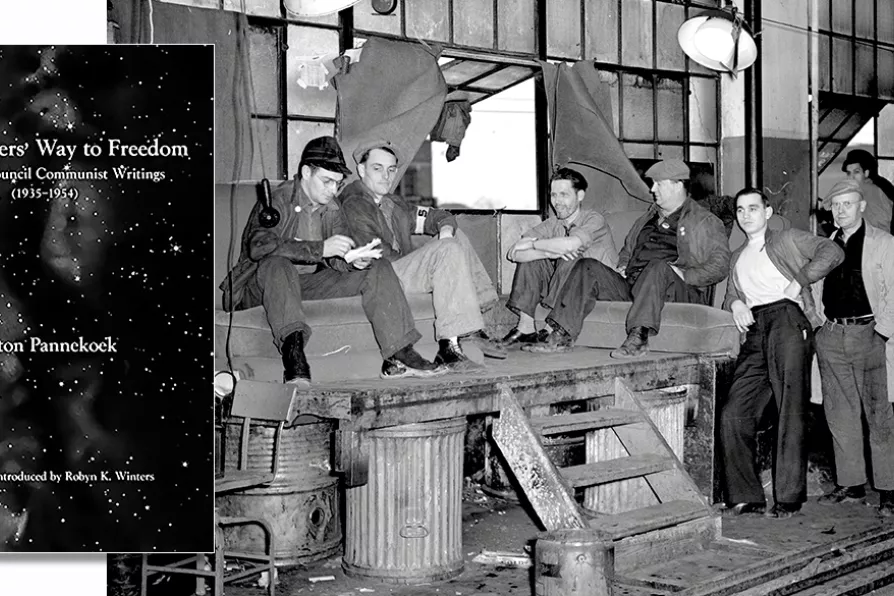RITA DI SANTO draws attention to a new film that features Ken Loach and Jeremy Corbyn, and their personal experience of media misrepresentation

 WORKERS' VOICE: The 1936–1937 Flint sit-down strike at the General Motors plant in Flint, Michigan, US organised by the United Automobile Workers (UAW) formed in 1935. This image inspired the well-known sculpture by Janice Trimpe in Flint’s Sitdowners Memorial Park
[Pic: Library of Congress/CC]
WORKERS' VOICE: The 1936–1937 Flint sit-down strike at the General Motors plant in Flint, Michigan, US organised by the United Automobile Workers (UAW) formed in 1935. This image inspired the well-known sculpture by Janice Trimpe in Flint’s Sitdowners Memorial Park
[Pic: Library of Congress/CC]
The Workers’ Way to Freedom and Other Council Communist Writings
Anton Pannekoek, edited by Robyn K Winters, PM Press, £23.99
WHEN Lenin wrote “Left-Wing Communism: An Infantile Disorder” in 1920, he was taking aim at diverse critics of the Bolshevik party’s tightening international grip over the interpretation of Marxism.
One of the bones of contention between the “left communists,” as they became known, and Leninists was about the role of political parties themselves, and hence the participation by communists in bourgeois parliaments. Foretelling later doctrinal divergence, this was a dispute about socialist strategy in Western Europe and how best to read the array of class forces confronted by workers — and hence how best to organise — in countries markedly different to revolutionary Russia.
A majority of the newly formed Communist Party of Germany (KPD) in December 1918 was opposed to electoral politics and trade unionism, positioning themselves to the left of Bolshevik orthodoxy. However, divisions sundered the new organisation precisely over these issues, fuelling the denunciations of Lenin and others at the Comintern whose official line called for participation in parliamentary elections and fighting to control established trade unions.
This split has been obscured in the shadows of history, yet it remains relevant today because of the questions raised by left communists about the behaviour of labour parties, supported by trade unions, that accept bourgeois parliamentarism uncritically as so-called representatives of workers’ interests.

BEN CHACKO welcomes a masterful analysis that puts class struggle back at the heart of our understanding of China’s revolution

Corbyn and Sultana’s ‘Your Party’ represents the first attempt at mass socialist organisation since the CPGB’s formation in 1921, argues DYLAN MURPHY

Speaking to a CND meeting in Cambridge this week, SIMON BRIGNELL traced how the alliance’s anti-communist machinery broke unions, diverted vital funds from public services, and turned workers into cannon fodder for profit











